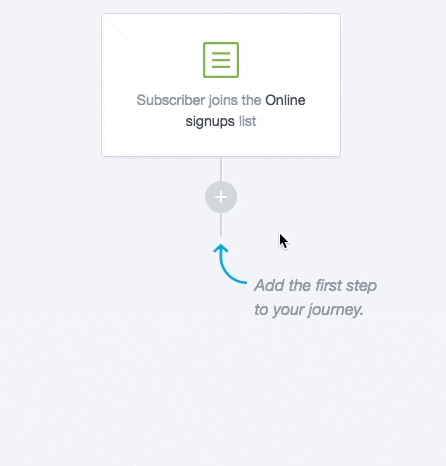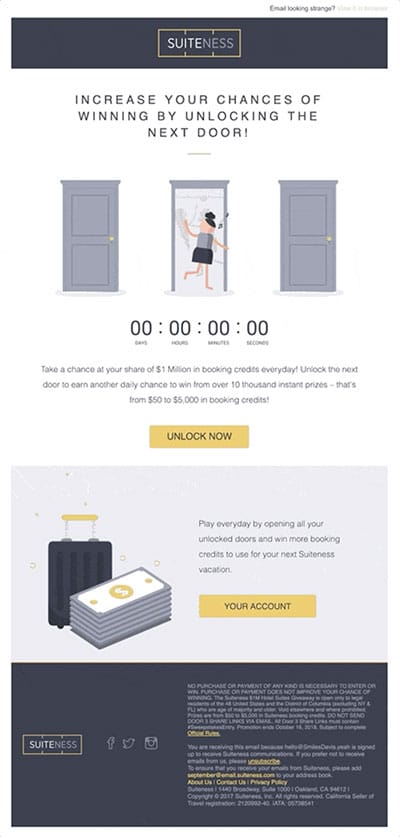Brands have a lot of content that they need to get out to their subscribers, and, while most of that information will fall under products and educational tools, some brands choose to make use of other email marketing tactics, such as reminder emails.
What is a reminder email?
A reminder email is exactly what it sounds like: an email that’s intended to help remind the subscriber of something specific. These can be emails to remind subscribers about events, abandoned carts, and so much more.
While many email clients allow brands to set up reminder campaigns, Campaign Monitor takes things to the next level by allowing users to use email automation to their advantage.
So, instead of sending out individual reminders, you can use tools like list segmentation and customer journeys to automate the entire process.
How to set up a reminder email in Campaign Monitor
The best way to set up a reminder email in Campaign Monitor is to set a specific trigger in your subscriber’s journey.
What is a trigger?
A trigger is defined as a specific event that “triggers” your email campaign’s next step. Depending on your campaign, this can be any number of steps, including a reminder email, adding a delay or pause in the journey, or setting different conditions that can lead a customer’s journey onto different paths.
Source: Campaign Monitor
Which trigger should I use for my reminder email?
When it comes time to define which trigger to use for your reminder emails, the best options are the condition and email triggers.
The condition trigger allows users to be segmented into further categories. So, for example, you could have someone subscribe and then choose a standard membership or VIP membership.
Depending on which condition the subscriber falls under, they can get better perks.
In the case of a reminder email, if someone decides to subscribe to an event newsletter, they can then be segmented into a category that chooses to receive these specific updates, and then they can be added to the email trigger.
Examples of excellent reminder emails
We used events as our example for using reminder emails above, but reminder emails can be used for so many different things. Therefore, we went ahead and compiled a few good examples of reminder emails to help brands get an idea of what they can do for their subscribers.
Timers and countdowns
Events, product launches/updates, and more can be made more exciting to subscribers with the use of a countdown or timer. These are handy little reminders of what’s to come, and Suiteness does a wonderful job of using a countdown to the end of their special booking credits event.
Source: Really Good Emails
Claim your gift/prize/free trial
Did your subscribers reach a milestone? Win something in a raffle you held? Sign up for a free trial of your latest program? Then don’t forget to remind them to claim whatever it is they won or signed up for.
The following example by Handy does an excellent job of reminding this reader to claim their $50 prize.
Source: Really Good Emails
How to measure the success of your reminder emails
Measuring the overall success of your reminder emails comes down to monitoring a few KPIs, including your open rate and click-through rate. These two figures will help your team determine who’s taking action, and who isn’t.
Do reminder emails really matter?
When it comes down to reminding customers of events, products, giveaways, and more, reminder emails are absolutely necessary. Take cart abandonment, for example. This is when an online consumer adds products/services to their cart and then leaves the website without ever making a purchase.
In 2017, the shopping cart abandonment rate came in at around 69%.
The solution: sending cart abandonment emails. These emails help to re-engage those consumers, and research has shown that these types of reminder emails end in a greater than 10% purchase rate.
What now?
Now that you know how to set up a reminder email and just how important they are to your overall email strategy, it’s time for focus in on re-engaging inactive subscribers.
Check out our 5 steps for re-engaging your subscriber list, all while saving you valuable time and money.


